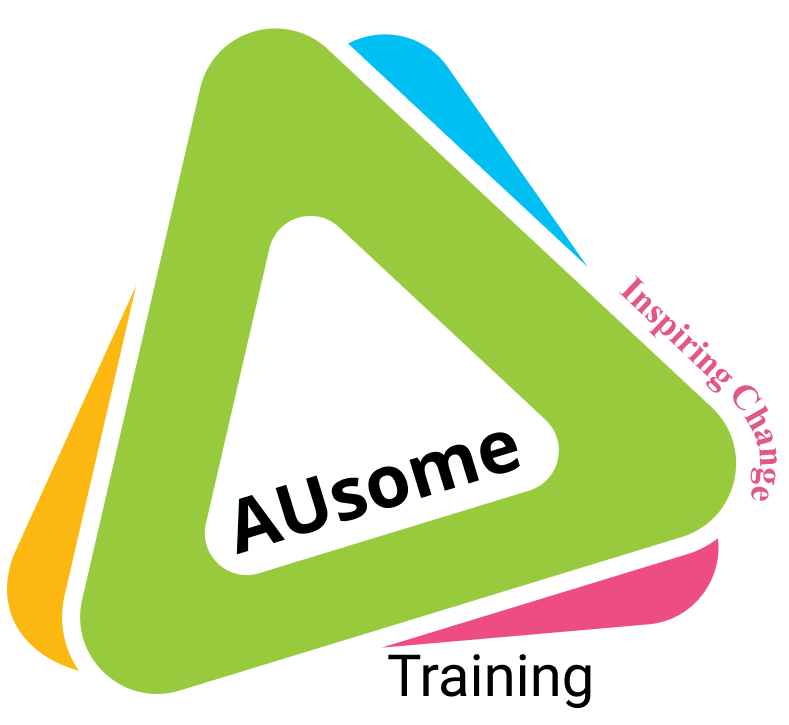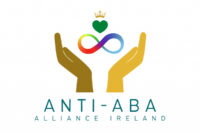Teaching children about neurodiversity through drama provides a wonderful way to explore differences and develop empathy. The Career Fair is a play written by Orla Barry and her friend Kate and adapted by Evaleen Whelton. One of our characters was inspired by our friend Brian Irwin. AUsome Training is owned by Konfident Kidz and we wrote this play to teach our own pupils about Neurodiversity. The play includes characters who are Autistic, dyslexic and dysgraphic. It is written from the Neurodivergent viewpoint and aims to educate children about Neurodiversity through drama in a positive manner. Our play has 13 characters but please feel free to add your own characters to suit the needs of your own classroom. This script is suitable for children aged 7 and upwards and can be adapted for younger ages depending on how creative you’re feeling! Drama gets kids involved and literally puts them in the shoes of the Neurodivergent characters so what better way to teach children about neurodiversity than to get them involved in a play! We did this play with several of our classes a few years ago and neurodivergent kids were so happy to see themselves represented positively in our play. Often the story around being neurodivergent is very negative and can add to shame and anxiety so if you’d like to teach your pupils to accept difference, to see positives in others and to open a discussion in your class then starting with this script is a really good way to do that. The script is written using identity language so we say Autistic not “with autism”. This is the preferred language by the Autistic community so we do ask that you respect that and not change to person first language “with autism”. The play is approx 10 mins long. Have fun!
Characters:
- Kate
- Harry
- Ben
- Barry
- Mark
- Miss Bird
- Astronaut
- Scientist
- Sports star
- Actor
- Inventor
- Costume Designer
- Millionaire
Scene 1: Kate is centre stage looking at a piece of paper, she looks sad. Miss bird is on the side of the stage
Curtains open.
[Three of her friends enter, Martha, Betty and Leah]
Ben: I can’t believe I got all of my spellings right. Woo!
Betty: Me too, me too!
Harry: I think everyone got them all right, it was so easy
Mark: And because we got 10/10 we get to go to the careers fair early. Kate, are you coming?
Kate: One minute… I’ll meet you in there
[Friends run off stage happily]
Miss Bird: Kate, can you do me a quick favour please, I’ve left my handbag in the hall and the careers day has already started! Take a left after the astronaut table then its just right, right, left, and you’re there.
Kate: [looking confused] eh. Yeah no problem Miss (walks away)
Curtains Close.
Scene 2: Career Day starting. All professionals standing behind tables with flyers.
Curtains Open.
All talking at once
Astronaut: Go to space, see the stars!
Scientist: Explosions, controlled explosions!
Sports star: Get paid to keep fit!
Designer: Create clothes out of nothing!
Millionaire: Make big bucks, sell cool things!
[all professionals, besides the astronaut, duck down behind tables]
Kate: [Walk in looking lost and confused. Looks around. Walks up to Astronaut] Did you see a woman’s hand bag around here?
Astronaut: No, but I have seen the moon!
Kate: Woah! Have you really?
Astronaut: Yeah, I went up in a space shuttle.
Kate: Did you always know you were going to be an astronaut?
Astronaut: No, I didn’t always do well at school, I’m dyslexic you see. But that’s one of the things that makes me so great at my job.
Kate: I thought dyslexia makes everything harder
Astronaut: It can make some things harder, but it also makes you really good at seeing the bigger picture, which helps me conceptualise space.
Kate: That’s amazing, I never thought about it like that.
Astronaut: [gives flyer] Good luck finding your handbag! [drop down behind table]
[millionaire stands up in front of table]
[Kate walks away, looking around walking backwards and bumps into millionaire, millionaire drops a pile of money on the floor]
Kate: Oh! I’m so sorry!
Millionaire: that’s okay, there’s more where that came from, I’m rich! You know the stationary shop Smiggle, I own that business.
Kate: Oh my goodness, I love that shop? Do you get stuff for free?
Millionaire: yes, but the best part is creating cool stationery. If I’m honest the only thing I liked about school growing up was stationary, but I always thought it was a bit dull. That’s how I came up with the idea.
Kate: So is being a business person all about creative thinking?
Millionaire: Yes, that’s a big part of it, but also you need to be able to plan and be strategic, and my dyslexia helps me to do this.
Kate: Oh, you’re dyslexic too
Millionaire: Yes, and did you know one in three CEOs are dyslexic. Sometimes I find all the paperwork a bit overwhelming, but I just have to ask for help from the people I work with, and then I help them with the things they struggle with too.
Kate: Oh could you help me with something? Have you seen a purple handbag anywhere?
Millionaire: I think I saw one over by the costume designers table.
Kate: Thank you! [go to costume designer table]
[Millionaire drops down behind table, designer stands up]
Kate: Excuse me, do you have a purple handbag belonging to my teacher?
Designer: No, this is actually a bag that I designed for a film. The film was a big hit, and so are all my props and costumes!
Kate: How do you even come up with the costumes, there’s so much detail.
Designer: Because I’m a visual thinker, once I see a piece of material i can create a costume in my mind
Kate: How do you know that you’re a visual thinker
Designer: It can be part of being dyslexic, and it really worked in my favour as I’ve always loved fashion.
Actor: And I was in that big hit film. As a kid I loved drama. It was the way I got to express myself and it really helped my confidence. So I made a career out of it. Lots of people thought I was a bit strange but that’s ok because being different is ok as long as you believe in yourself. I think a bit differently and I say things that sound odd to people sometimes but that’s coz my brain works differently and I communicate differently too! I’m neurodivergent, I have an autistic brain and dyslexia so I can do things differently to other people. Everyone has their talents and capabilites! Sometimes grown ups forget that and they focus on the things we can’t do but that’s silly because EVERYONE has things they can do well.
Kate: Yeah! Life would be pretty boring of we were all the same, I never thought of it like that before!
[Leah, Martha and Betty run over, designer drops down behind table]
Ben: There you are! Have you thought about who you want to be when you grow up?
Kate: I’m not really sure what I want to do
Harry: Umm, you need to be really good at school to go to university and get a job you know Kate.
[Sports star stands up]
Sports star: Actually, I got a job that I love and I didn’t go to university. I knew when I was young that sports were my passion, and now I get to play for Ireland.
Mark: I knew I recognised you from somewhere!
Sports star: Yeah, I’ve been on TV a bunch of times because I’ve won so many games
Betty: Are you not worried you’ll miss the shot?
Sports star: Of course, but I have really good spatial awareness, it comes from my dyslexia
Kate: Woah are you dyslexic as well? This is so wild! You’re the fourth person I’ve met today who is dyslexic!
[Inventor stands up]
Betty: I didn’t know dyslexia could be a good thing.
Inventor: Oh yes, people have different types of minds. That’s gotta be a good thing. That’s how we have lots of different idea in the world. People call it neurodiversity. That just means that we have different brains, different ways of thinking same as we have different colour eyes and different shaped noses.
Mark: And what do you do?
Inventor: Well I’m an inventor. I am autistic so that means I am a natural problem solver and I can invent things in my head. I see the solutions and then I draw them and other people make them. I also have dysgraphia, that means my brain sends clearer messages to my mouth than it does to my hands so I can get my ideas out much better by talking than I can by writing them down.
Mark: But how did you get through school? Didn’t you have to write everything? That’s what we have to do!
Inventor: Well yes, I did have to write everything. School was very hard for me, not because I didn’t understand but because my teacher called me lazy. They didn’t realise I was trying really hard.
Betty: I’m sorry that happened to you. Maybe if we just let people talk more and do less writing then school would be easier for everyone especially for people like you and people who are dyslexic.
Ben: That’s a great idea! Why do grownups make things so difficult for kids ? Shouldn’t we start doing things differently so school can be a nice place to be for everyone?
Kate: Sounds like a good plan to me!
Inventor: It sounds like you could be an inventor too Ben! Look at your new idea! Yes it would be much better if things changed. I was an adult before a teacher realised what was causing my problems. Once I could call out my answers instead of writing them then my problems disappeared. It also helped me to be a better speaker. As well as inventing things I travel around the country talking about autism and dysgraphia.
Mark & Kate: oooh! That’s so cool!
Betty: So it’s because of people like you who are autistic that we have lots of inventions?
Inventor: That’s right. Autistic people are really good at creating things. That can be art, programming language, new ideas or useful things like mobile phones!
Ben: WOW! Thanks for making all that cool stuff for us!
Harry: C’mon guys there’s a scientist over here that I want to talk to.
[girls wave bye to sports star and walk over to scientist. Sports star ducks down under table]
Harry: hi, what’s your job all about?
Scientist: That’s a good question. My job is all about making discoveries and working things out. I have to spot patterns and see if anything looks different in my information. That’s why there are loads of dyslexic scientists, we are great at noticing differences.
Harry: No way are you dyslexic. Dyslexic people can’t even read!
Scientist: Actually you’re wrong, dyslexic people can read, our minds just work a little differently but we can still do anything that we put our mind to.
Kate: Yeah that’s true!
Betty: I didn’t realise dyslexia was so cool
Kate: Yeah, it can even help you if you’re a costume designer because we are visual thinkers which makes creating costumes and bags easier. Oh, by the way, have you seen a purple handbag? I was supposed to get it for Miss Bird but her directions were so confusing!
Scientist: Oh is it this one? [hold up bag] I discovered it!
Kate: amazing! Thank you so much!
[Kate runs offstage]
Curtains close
Scene 3: Miss Bird is on stage
Curtains open.
[Kate runs in excitedly]
Miss Bird: Oh there you are!
Kate: I’m so sorry I took so long, I got distracted talking to so many cool people. There was an Astronaut and a Millionaire and a costume designer and a Sports star and a scientist, an inventor, an actor…. and …and you’ll never guess what!
Miss Bird: What?
Kate: All the people I met were neurodivergent, just like me! When my mum said I was dyslexic I thought it just meant I was bad at school, but actually it’s just that I have a different type of brain! I can’t believe that neurodivergent people have such cool jobs! [pause and look sad]
Miss Bird: What’s wrong?
Kate: Does that mean that I have to have a fancy job when I grow up?
Miss Bird: No, dyslexic people can have all types of jobs, they can even be teachers like me
Kate: What? Are you dyslexic too? I thought teachers had to be really good at school?
Miss Bird: Yes, I am dyslexic and I’ve had to work really hard to be a teacher, sometimes I feel anxious when I’m writing on the board and I can’t spell something, but my dyslexia also means that I’m good at thinking outside the box which is perfect for being a good teacher.
Kate: I get it. Our brains makes us different and our differences make us cool.
Curtains close.



